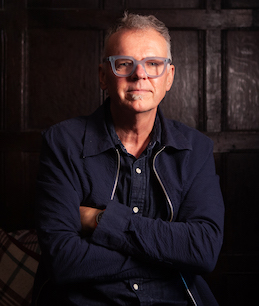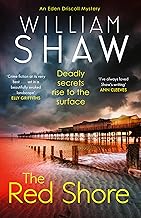 Seaside towns are usually places people choose to retire to. I chose Teignmouth so I could kill people there.
Seaside towns are usually places people choose to retire to. I chose Teignmouth so I could kill people there.
Teignmouth is a seaside town in South Devon. It's not the prettiest in Devon, or even the best well-known, but for me, it is the perfect place to start a new crime series. For a start, I grew up there. I lived there until my family moved to the village on the other side of the estuary. Like everyone, we had a boat. My brother and I would chug it out to sea and fish for mackerel and bass, rowing it back in when the outboard failed as it usually did. Our parents never once thought of buying us life jackets. Apart from a couple of years when I lived in Los Angeles, I don't think there's been a single year of my life when I've not been back there.
A well-respected editor had asked me if I wanted to write a new series, which meant I needed a new location, and this was one I've always had in my back pocket. It's as real to me as anywhere.
I could have made one up, of course. Agatha Christie invented the fictional town of Brackhampton for her Marple series. If it's good enough for Agatha, shouldn't it be good enough for me?
It's possible that contemporary readers are a bit more sophisticated than they were in Christie's day. Back then Christie could have the maid cry out, 'There's a body in the library!' and that would be enough. You readers today seem to know more of the realities of murder – which is, whatever the newspapers tell us – increasingly rare in our country. If I'm going to kill someone these days, I realise I have to work pretty hard to convince the reader you it could happen. So it's important we build real worlds – Morse's Oxford, Rankin's Edinburgh – to put our crimes into, otherwise we're losing you on the first page.
So my real place will be Teignmouth. And who doesn't love the sea? We continue to flock there though we are often not sure why. For all the sticks of rock and cream teas, there is something deep and unsettling about the seaside. I'm hardly the first to figure that out. Think of Agatha Christie's Evil Under The Sun, set not far away on Devon's Burgh Island, or Daphne Du Maurier's Rebecca, set on a Cornish cliff. The seaside is a strange place.
I once wrote an article for The Independent on Sunday about twenty-four hours in the life of a seaside town. On sunny days I watched the crowds disgorge from the trains and take the short walk down the hill to the town's beach. One thing I found interesting. The closer they got to the sea, the more they shed their buttoned-up selves.
The seaside allows us to change. It's the edge of our universe, the border land where we can lose our inhibitions. On the beach people disrobed, drank, they took drugs, they disobeyed all the signs that said you weren't allowed to drink alcohol on the beach: they became different. I remember the couple I saw one night as the sun first rose, having sex, upright, on the stairs up from the beach. I think the sea makes us go a little mad. And that's excellent for plot.
You look for places where there is conflict too because that's what you need in a good crime book – and seaside towns are always battlegrounds. They're battling the elements, obviously. Right now Teignmouth beach has been all but swept away in the storms. The sand has literally been scoured from the shore by the spring weather. A few years ago the end of the Pier was wrecked by gales.
And it has to contend with people too. The thing is, though we British profess love the seaside, we treat it badly. Most of our seaside towns are a shadow of what they were fifty or sixty years ago. Coastal communities have been in decline for a dozen different reasons. Towns have to fight for their survival these days, and there are a million plots there too. One of the things I love about Teignmouth – and why I prefer it to many of the ostensibly prettier towns along the coast – is that it still has an industrial heart and it is fighting to keep it.
When I was a boy, it still had a working boatyard that had built minesweepers and luxury cruisers. That's been torn out now and replaced by flats. But there is a real fishing industry still, clinging on by its nails, and most of all, it's a working dock. Improbably large ships enter the improbably small river mouth on most days.
Teignmouth is as real a place as you can get and I'm hoping it's going to tell me a lot of stories.
The Red Shore, Hemlock Press, Released July 2, 2025 Hbk £18.99

Read SHOTS’ review of The Red Shore by Phil Viner
Photo of William Shaw © Poppy Berry